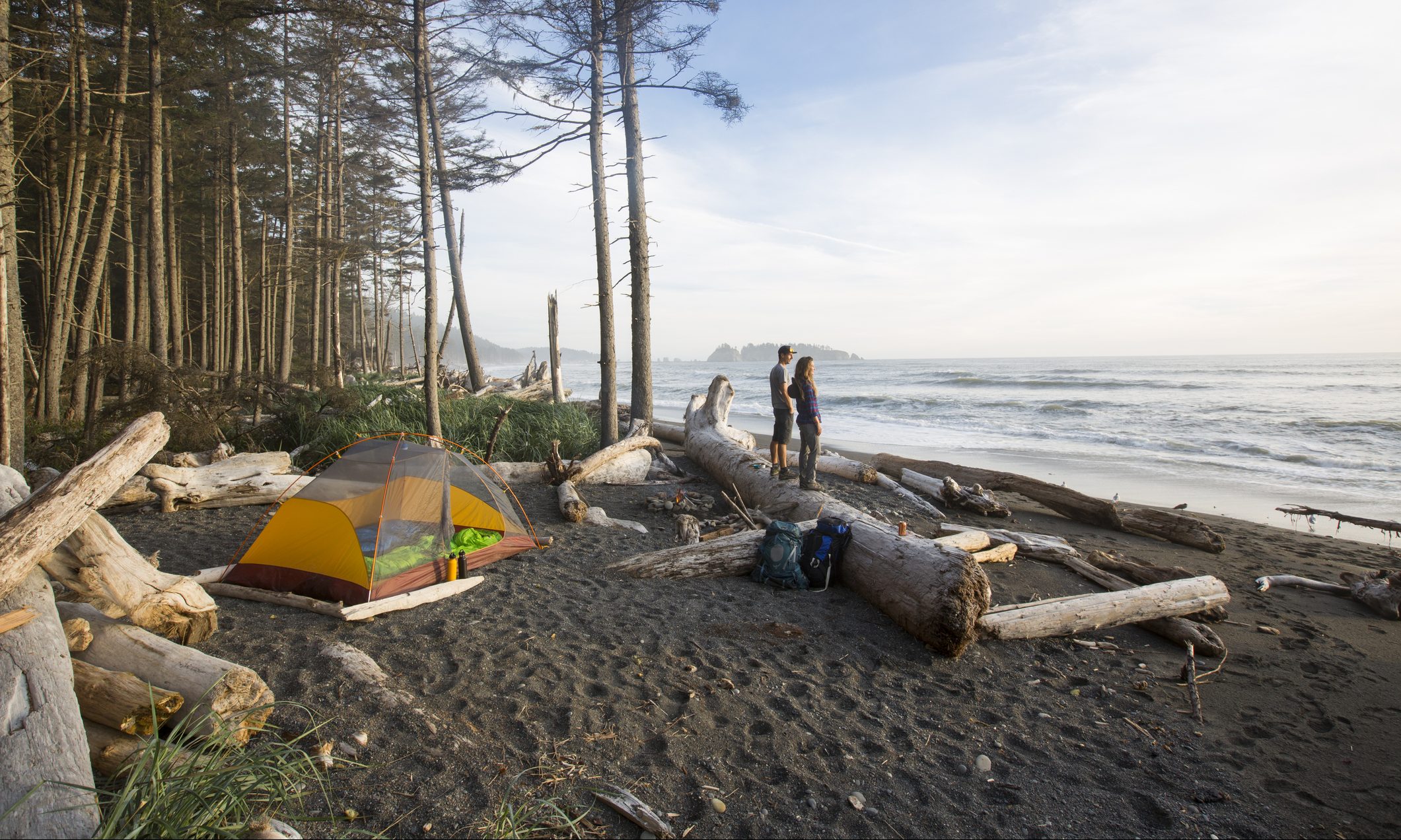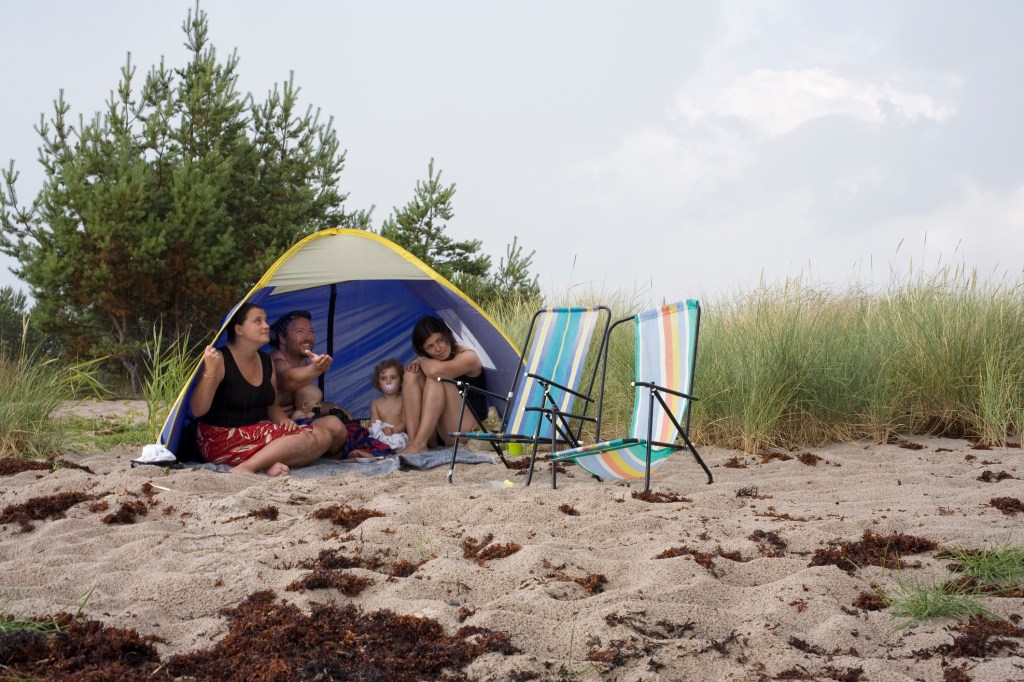

Beach vacations. The phrase evokes warm sun, soft sand, stunning sunrises and sunsets and total relaxation. But a trip to the beach can also be associated with sunburn and dehydration, if you don’t properly protect yourself and your family. You might have considered traveling with your own beach shelter, in the form of a tent. Here’s what you need to know before packing a tent for the beach.
Videos by Outdoors with Bear Grylls
The rules on tents at the beach

Beach tents can be a great option to extend time on the sand, particularly for children and individuals sensitive to sunlight. But they can prevent other beachgoers from getting a great view of the coastline and, more importantly, raise safety concerns, which is why they’re not allowed everywhere.
While anything goes on some beaches, others such as Myrtle Beach slap size restrictions on beach shelters. Most California beaches allow any structure that isn’t fully enclosed by four walls, but a lot of other beaches prohibit anything other than basic umbrellas.
Even beaches that allow tents or other shelters during the day will likely require you to remove them before sunset each evening. Only a few beaches, mostly within state parks, allow overnight camping on beaches and may require permits to do so.
Where tents are allowed, beachgoers are generally required to securely anchor them to prevent injury to others.
If you try to take a tent onto a beach where it’s prohibited or violate related rules, be prepared to pay a hefty fine. Regulations can vary at the state, city, and individual beach level, so be sure to check the rules before you head to the shore.
Beach tents vs. camping tents

While you could technically take just about any tent to a beach where allowed, choosing one designed for the job is always better. Camping tents are built to serve a completely different purpose, so they could be too robust for a casual beach trip.
Beach tents offer several benefits for their intended use case, including:
- Size and portability: Depending on their size, beach tents can fit a single person or a small family, but they usually don’t provide the same amount of space as camping tents that need to house sleeping bags and other gear. They often have a smaller total footprint and vertical height than camping tents. Because they’re intended for recreational comfort rather than overnight shelter, beach tents often feature lightweight pop-up designs that are quick and easy to set up several times throughout the day, fold up when high tide rolls in, and transport back to the beach house.
- Breathability: Some camping tents are engineered to keep backpackers warm in inclement weather, so they’re fully waterproof and insulated to lock in heat. Beach tents, however, were designed with summer scorchers in mind. They’re typically constructed of breathable materials and may not even completely fasten closed to allow the summer breeze to sweep through the tent—and kiddos to crawl in and out. In fact, many “beach tents” more closely resemble canopies than the shelters you’d set up in the mountains.
- Sun protection: Rather than shielding you from wildlife and extreme wilderness conditions, beach tents are primarily designed to provide a barrier from the blazing sun during long days by the water. They typically boast high UPF protection scores to prevent sunburn and provide relief on sweltering outings. Beach tents may also feature fabrics that won’t bleach or fade under the intense rays.
- Anchoring system: The pegs you pound into solid earth won’t stay planted in loose sand. To secure a beach tent, you’ll need to tie guy lines to sand bags, dig deep to drive corkscrew-style sand anchors into damp sand, or bury a deadman anchor several feet below the sand’s surface. Many models will come with the materials needed to employ one of these anchoring systems.
- Affordability: Because beach tents are meant for making your vacation enjoyable rather than keeping you alive in the backcountry, they’re usually more affordable. They don’t demand the same level of weatherproofing or performance and average under $100—even for larger high-end models—compared to the $500 you could easily spend on a camping setup.










Pingback: Can You Bring a Tent to the Beach? | Red Devil Radio
Pingback: Are tents allowed on Florida beaches? - Tourist guide